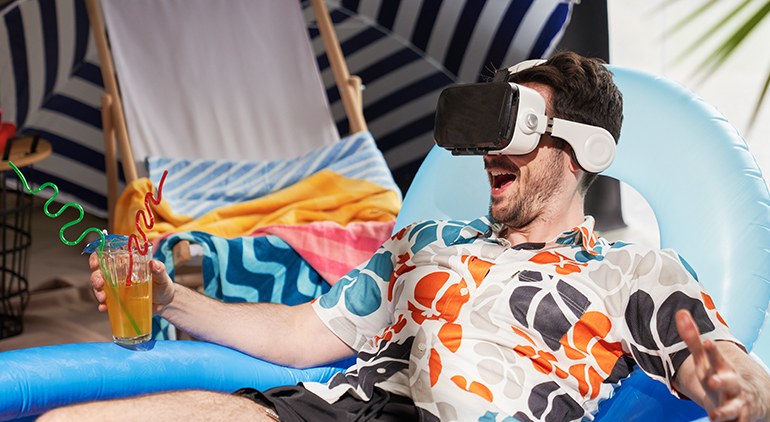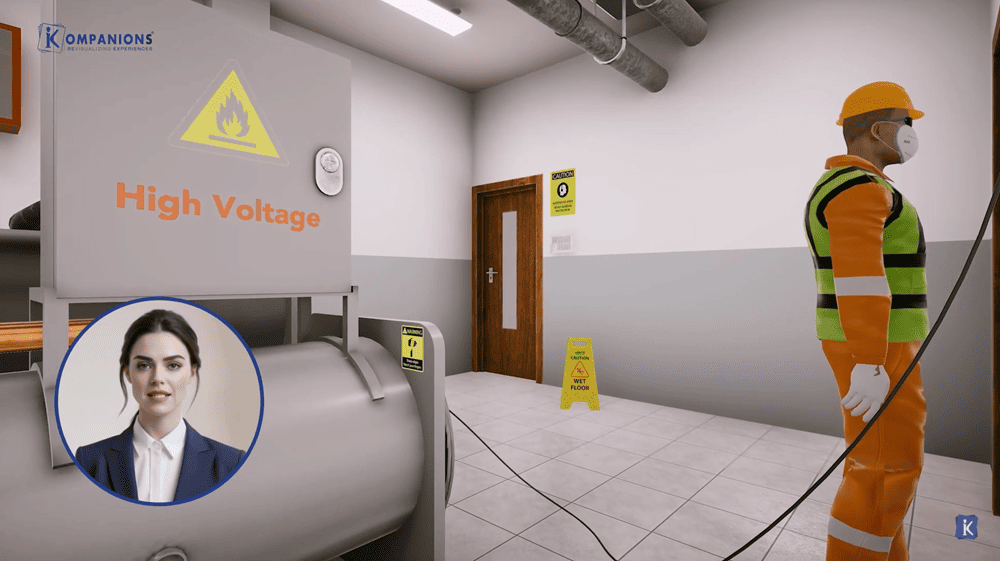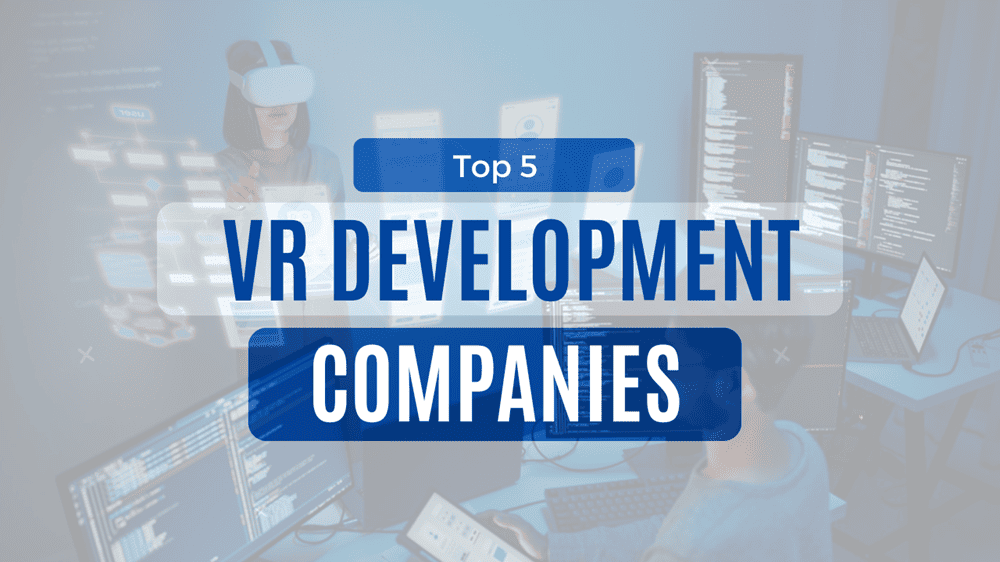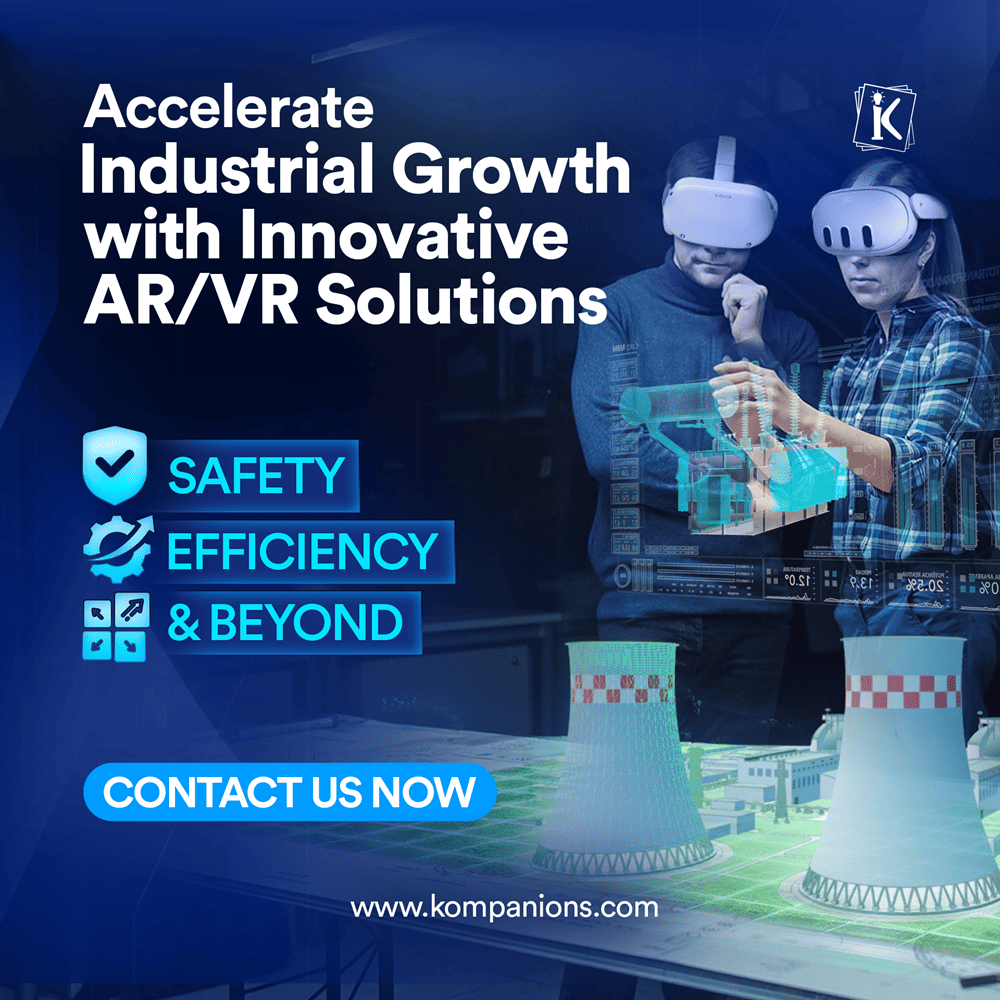7 Examples of Augmented Reality in Hospitality Industry: AR/VR for Hotels
Today, as we stand at the brink of a new era of technology, Artificial Intelligence (AI), Augmented Reality (AR), and Virtual Reality (VR) have become a significant part of our daily lives. And it should come as no surprise that the hospitality industry is also experiencing a seismic shift.
- As per recent reports, the global hospitality market is projected to reach approximately $11.7 trillion by 2029, growing at a compound annual growth rate (CAGR) of 16.13% from 2024 to 2032. (Source: Market Data Forecast)
Any customer experiences millions of tiny queries and concerns popping in their head from the time of check-in all the way to check-out.
Big industry players like Marriot and Four Seasons and service providers like AirBnB have been addressing these queries forever through traditional practices and human-centricity in their services.
But gone are the days when warm smiles and a comfortable stay were all it took to make the guests return to the same hotel. But in the age of smartphones and devices, answers too must come through smartphones and devices.
• The thriving $570 Billion hospitality industry is augmenting itself by integrating AR in the hotel industry with the $31 Billion Augmented Reality industry.
• The $30 Billion VR industry is projected to value over $110 Billion by 2025 and hospitality will undeniably be a major shareholder.
• Over 70% of travel agencies along with over 60% of hotels have adopted AI in its entire magnificence.
Examples of AR and VR in the Hospitality Industry
Augmented Reality (AR) and Virtual Reality (VR) are revolutionizing the hospitality industry, enhancing guest experiences with immersive virtual tours, interactive dining options, and personalized services that redefine modern hospitality standards. Here are a few examples:
• The Hub Hotels, which is a part of the Premier Inn hospitality mammoth, has been playing around with interactive augmented reality rooms with maps pinpointing local attractions and places of interest.
• Best Western hotel group collaborated with Disney to allow guests especially children to see them enjoy the room with Disney characters as their roommates.
• The Atlantis hotel group based in Dubai has included a VR tour powered through VR-enabled glasses.
• Amadeus allows customers to use VR headsets to book flights as well as look for hotel rooms along with other tourism-based integrations
• The Marriot group is known for implementing AI-powered facial recognition tech to perform seamless check-ins.
• The Mansion uses AR-powered brochures to give their offerings an immersive experience.
• “Connie” is an AI-enabled robot working in Hilton Hotels.
Applications of AR in the Hospitality Industry
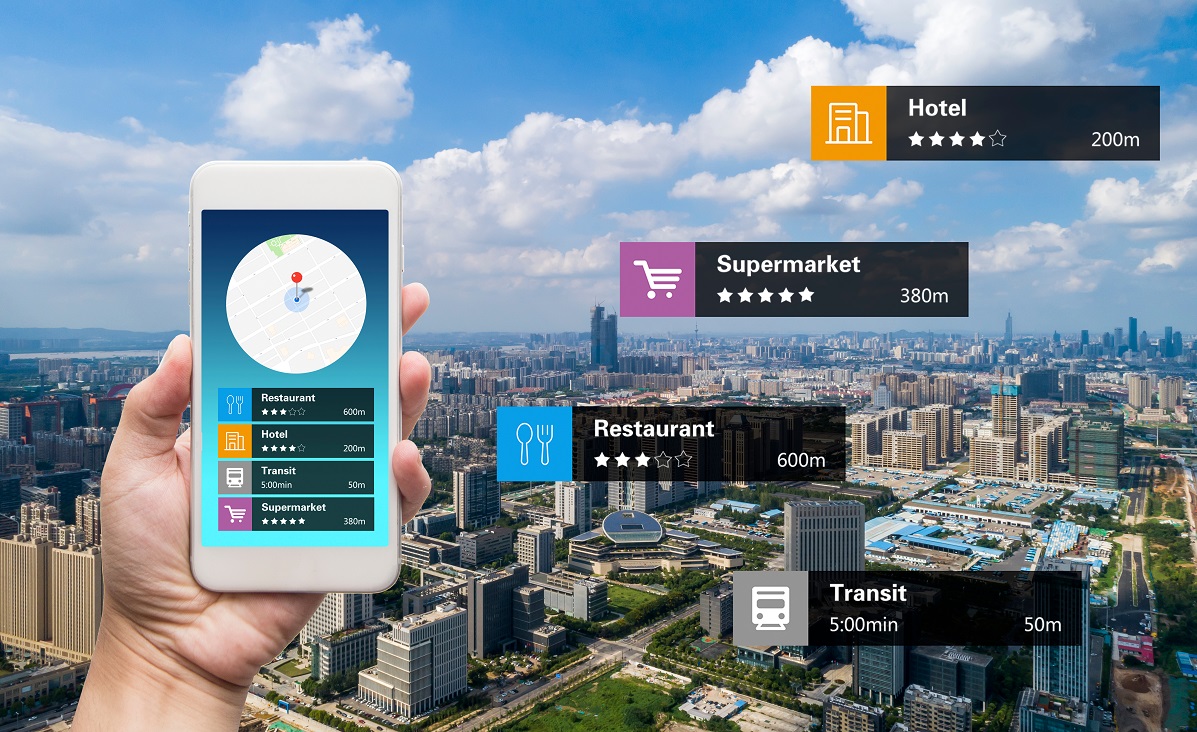
From virtual tours to interactive menus, KOMPANIONS offers innovative industrial AR solutions that cater to the modern traveler, making stays more personalized and immersive while increasing efficiency for hotels and restaurants. Let's explore some of them.
1. AR for Tourist Info
Augmented reality for hotels can transform static maps or guidebooks into interactive hubs of tourist information. Guests can simply point their smartphones at a map provided in their rooms, hotel lobbies, or other designated areas, and instantly access an array of rich, engaging content.
For example, the AR-enabled app can highlight key tourist attractions, landmarks, and cultural hotspots nearby, offering detailed information, historical insights, and high-quality images to entice exploration. In addition, the app can integrate features such as live directions, real-time weather updates for the destination, and estimated travel times.
To further enhance convenience, AR-powered hotels can include an on-demand taxi service integration, allowing guests to seamlessly book rides to their desired locations without navigating through multiple apps.
2. AR Gamification
With interactive augmented reality hotel rooms becoming a norm, the integration of AR technology into hotel booking will rise to be the norm.
Customers can control their rooms with IoT-enabled systems simply through their smartphones. Virtual switchboards and heating mechanisms will flourish.
Ready to redefine guest experiences and stay ahead in hospitality? Let’s build immersive AR/VR solutions tailored for your business!
Contact Us3. Augmented Hotel Environments
Basic amenities like a pool or recreation room to keep the guests entertained are just not enough these days. People are always looking for newer and better experiences.
This is where AR-powered hotel environments help guests experience realistic virtual depictions that enhance their real environment.
4. Augmented Reality for Hotel Marketing
AR excites hotel marketing by letting guests preview rooms, amenities, and nearby attractions from anywhere through their phones/laptops. Virtual tours help travelers explore suites before booking, while interactive maps guide them around the property.
Augmented reality hotels can also offer interactive menus or themed experiences, making stays more immersive & comfortable. This tech builds trust, boosts bookings, and creates memorable guest interactions, giving hotels a modern edge in a competitive market.
Related post: Experiential Dining with Augmented Reality Restaurants
Applications of VR in the Hospitality Industry
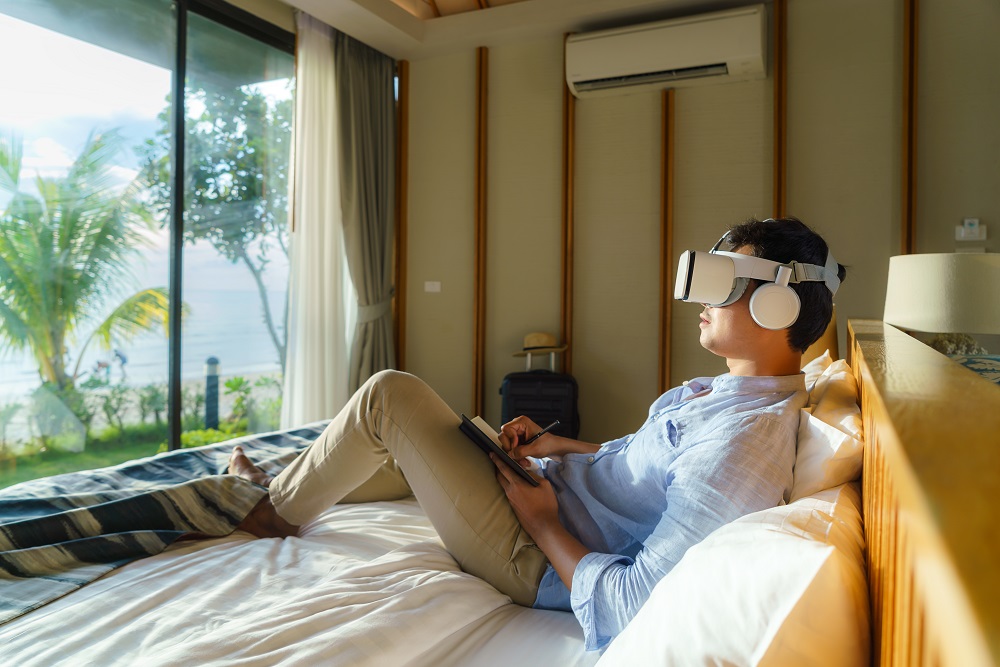
VR enables guests to explore destinations and accommodations before booking, enhancing decision-making and customer satisfaction while providing hotels and resorts with powerful marketing and training tools. Let's talk about some of them:
1. VR Powered Hotel Tours
The customers landing on the site or using the hotel’s dedicated app can take a virtual walk through the virtual corridors of the virtual hotel and see their virtual rooms with the virtual furniture and virtual facilities through these virtual reality tours.
2. VR Assist in Travel Planning
Imagine how convenient it is for a guest to plan their travel starting from hotel booking to finalizing their itinerary.
VR can help tourists plan their whole from the very beginning comparing hotels, booking the tickets, exploring local attractions in life-like environments, and planning their days seamlessly.
Also read: Benefits of Augmented Reality in Business
Applications of AI in the Hospitality Industry
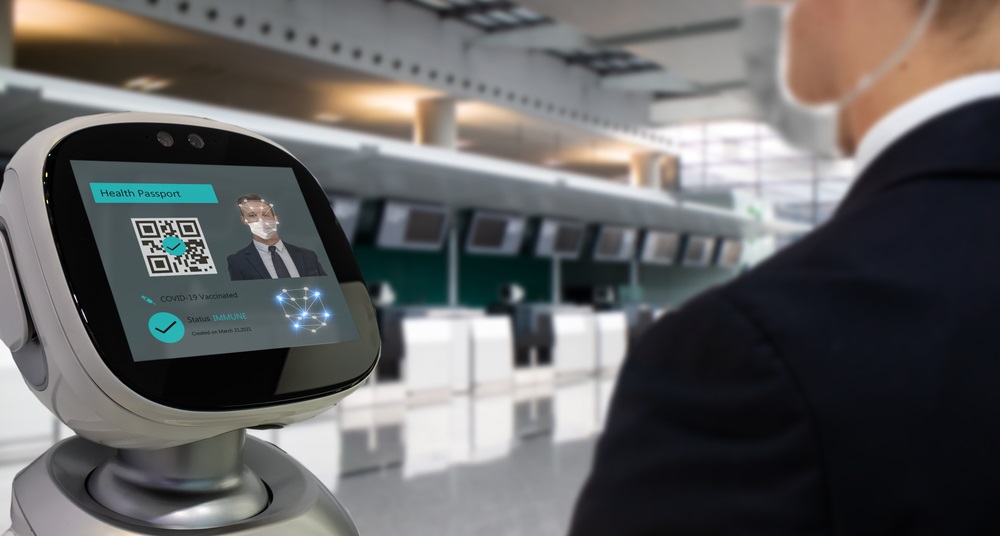
AI-powered chatbots to predictive analytics, hotels and resorts are leveraging AI to streamline processes, improve decision-making, and deliver tailored services that meet the evolving needs of modern travelers.
1. Customer Service
AI to deliver in-person customer service is an idea being toyed around. With AI-enabled robots being developed, a fascinating array of implications can be seen. Not just robots but AI-powered augmented avatars can help redefine the guest experience at every stage of their stay.
2. Facial Recognition
On arrival at the hotel, the customer simply has to smile at a kiosk to get their check-in approved. Additionally, through the Beacon technology, virtual keys would be sent to their smartphones via Bluetooth, making it a milestone in contactless check-in services.
Elevate guest experiences and lead the future of hospitality—unlock the power of AR/VR solutions designed just for you!
Contact UsConclusion
- As a response to COVID, the sector is looking to automate some sections of its business.
- Automation helps the business achieve operational efficiency as well as protects them from disruptions.
- A survey has concluded that “smart hospitality” is expected to rise above 25% by 2021.
Artificial Intelligence and big data processing are now crucial to every industry. With loads and loads of consumer data pouring in from a multitude of touchpoints, all this data inevitably has to be processed to make sense and sculpt the next major industry offering.
Augmented Reality is imperative in the hospitality industry because of the amount of information a customer would require during the booking process. By allowing the customer to experience an augmented model of the room, the satisfaction multiplies manifold.
By allowing the guests to experience nearby sights and tourist spots, VR integration into a hotel or tourism website can greatly influence the local market.
To know more about personalization possibilities the unending advantages of AR, VR, and AI, and the advancement of technology in the hospitality industry, contact KOMPANIONS. We keep ourselves updated on the latest trends and happenings throughout the industry.

